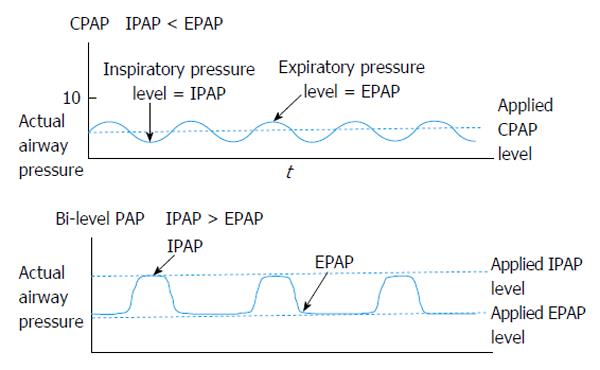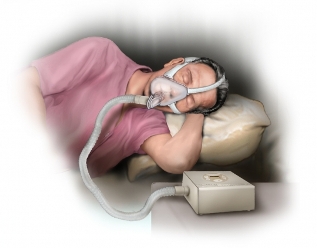Pressure airway positive continuous bi level therapy 1175 wjc heart failure v6 i11
Table of Contents
Table of Contents
Are you or your loved one experiencing breathing difficulties while sleeping? Continuous positive airway pressure therapy might just be the solution you need. However, before seeking this treatment, it is essential to consider the ethical considerations that come with it.
The Pain Points of Continuous Positive Airway Pressure Therapy and Ethical Considerations
Continuous positive airway pressure therapy (CPAP) is a medical treatment used to assist breathing during sleep. One of the pain points associated with CPAP is that it requires the use of a device, which can be uncomfortable and inconvenient. Furthermore, ethical considerations arise due to the cost of the treatment and the availability of resources to administer it.
The Target of Continuous Positive Airway Pressure Therapy and Ethical Considerations
CPAP is used to treat breathing difficulties while sleeping, such as sleep apnea. Ethical considerations come into play when deciding whether the benefits of the treatment outweigh the costs, including financial expense, impact on quality of life, and access to resources.
Main Points about Continuous Positive Airway Pressure Therapy and Ethical Considerations
Continuous positive airway pressure therapy is a medical treatment used to treat sleep apnea. While effective, it comes with ethical considerations such as cost and resource availability. Decisions regarding treatment should weigh the benefits and drawbacks, including impact on quality of life.
Personal Experience with Continuous Positive Airway Pressure Therapy and Ethical Considerations
As a healthcare provider, I have seen the benefits of CPAP therapy in treating sleep apnea. However, I have also encountered patients who struggle with the inconvenience and discomfort of the device, as well as the cost of treatment. It is essential to have honest discussions with patients to ensure they are fully informed of the benefits and drawbacks of treatment.
Resources and Access to Continuous Positive Airway Pressure Therapy and Ethical Considerations
In many cases, CPAP therapy is covered by insurance. However, access to resources is not always equal, and the cost of treatment can still be a barrier for some patients. It is important to consider the impact of these factors on a patient’s overall well-being and quality of life.
Equity of Access to Treatment
One of the ethical considerations of CPAP therapy is equity of access to resources. Some patients may have better insurance coverage or easier access to medical resources, while others may struggle to obtain adequate care. It is crucial to recognize these disparities and work towards ensuring that everyone has equal access to effective treatment.
Patient Autonomy and Informed Consent
Another ethical consideration of CPAP therapy is patient autonomy and informed consent. Patients must be fully informed of the benefits and drawbacks of treatment to make an informed decision. Healthcare providers have a responsibility to present treatment options and ensure that patients are aware of the potential consequences of their decisions.
Question and Answer about Continuous Positive Airway Pressure Therapy and Ethical Considerations
Q: Is CPAP therapy always effective?
A: CPAP therapy can be highly effective, but it may not work for everyone. It is essential to discuss alternative treatment options and potential drawbacks with your healthcare provider.
Q: Is CPAP therapy expensive?
A: The cost of CPAP therapy varies depending on insurance coverage and the availability of resources. It is essential to discuss potential costs with your healthcare provider to ensure that you are fully informed of the financial impact of treatment.
Q: Can I use CPAP therapy while traveling?
A: Yes, CPAP therapy is portable and can be used while traveling. However, it may require additional planning and resources to ensure that you have access to the necessary equipment and supplies.
Q: Are there any side effects of CPAP therapy?
A: CPAP therapy is generally safe, but some patients may experience discomfort or irritation from the device. It is essential to discuss any potential side effects with your healthcare provider and address any concerns you may have.
Conclusion of Continuous Positive Airway Pressure Therapy and Ethical Considerations
Continuous positive airway pressure therapy is an effective treatment for sleep apnea, but it comes with ethical considerations such as cost and resource availability. To ensure patient autonomy and informed consent, it is crucial to have open and honest discussions with patients about the benefits and drawbacks of treatment. Additionally, healthcare providers must work towards ensuring equal access to care for all patients, regardless of socioeconomic status or other factors.
Gallery
Mechanism Of Action Of Continuous Positive Airway Pressure Therapy IV

Photo Credit by: bing.com / airway mechanism
Continuous Positive Airway Pressure Therapy | Nursing Information

Photo Credit by: bing.com / pressure continuous positive airway therapy
Continuous Positive Airway Pressure (CPAP) Devices Market

Photo Credit by: bing.com / pressure positive airway continuous cpap devices types market machine breathing bipap different insights premium press release
What Is Continuous Positive Airway Pressure Therapy? | GenesisCare

Photo Credit by: bing.com / continuous airway positive pressure
Positive Airway Pressure Therapy For Heart Failure

Photo Credit by: bing.com / pressure airway positive continuous bi level therapy 1175 wjc heart failure v6 i11



